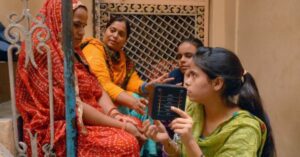Delhi School Bans Disposable Plastic, Harvests Sun & Rain To Save Rs 10 Lakh/Year!
The sustainable school also has a ‘rolly polly’ to convert waste into manure and a farm-cum-forest where each student gets to pluck vegetables. Furthermore, the school canteens have replaced all plastic cutlery with steel. India totally needs more schools like this!
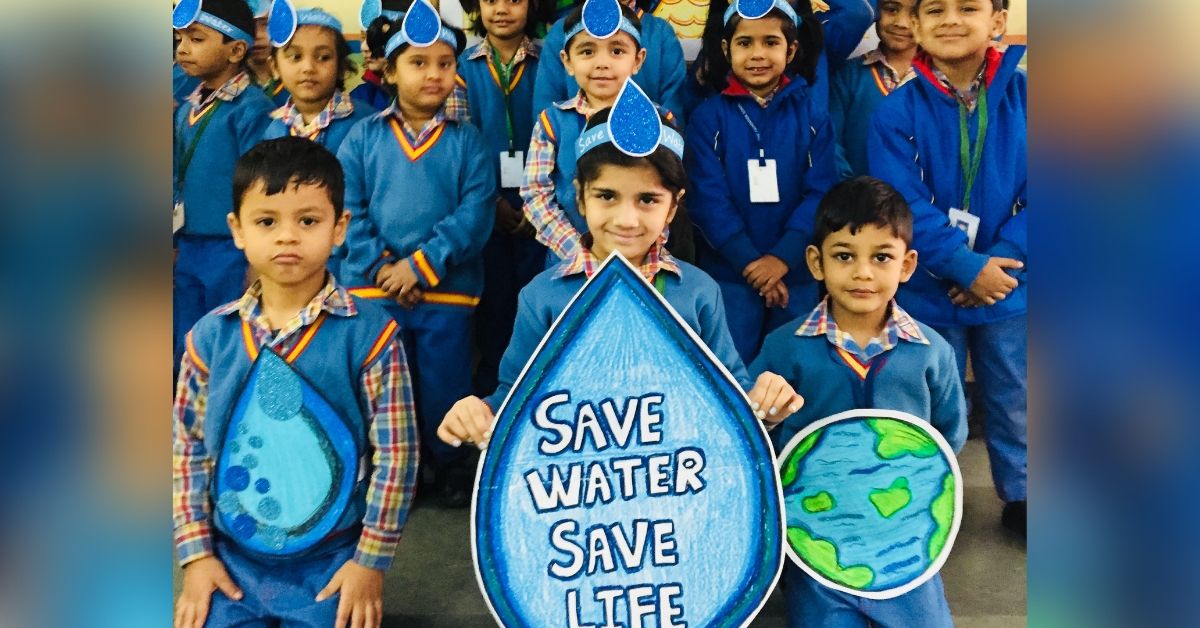
For children, parents are the first and immediate teachers, teaching them values that play an integral role in determining their character, habits, and lifestyle choices.
But for Aban Gandhi, mother of a 12-year-old in Delhi, the roles were reversed. Her daughter, Rhea, is not only raising awareness on waste management but is also finding feasible solutions to curb garbage generation.
Let your child learn about important issues like animal conservation and waste segregation. Check out this combination of five eco-conscious activities that are fun as well as valuable lessons, here.
It started with Rhea’s insistence on using cloth bags instead of plastic ones, followed by teaching the domestic help to separate wet and dry garbage.
While Aban was surprised to see her little one raise environmental issues, which even adults are ignorant of, she was happy to know that Rhea is excelling in lessons that are beyond academics.
There is a sense of responsibility and interest that Rhea takes towards everything she does, even something as simple as switching off the fan to save electricity when she’s not in the room, Aban tells The Better India.
The actions of the class 7 student are also a reflection of what she learns at school.
The Foundation School, a sister establishment of The Indian School in Delhi, is not your regular school where a child sits in a classroom for 5-6 hours, giving regular tests and examinations, to graduate with half-baked life lessons.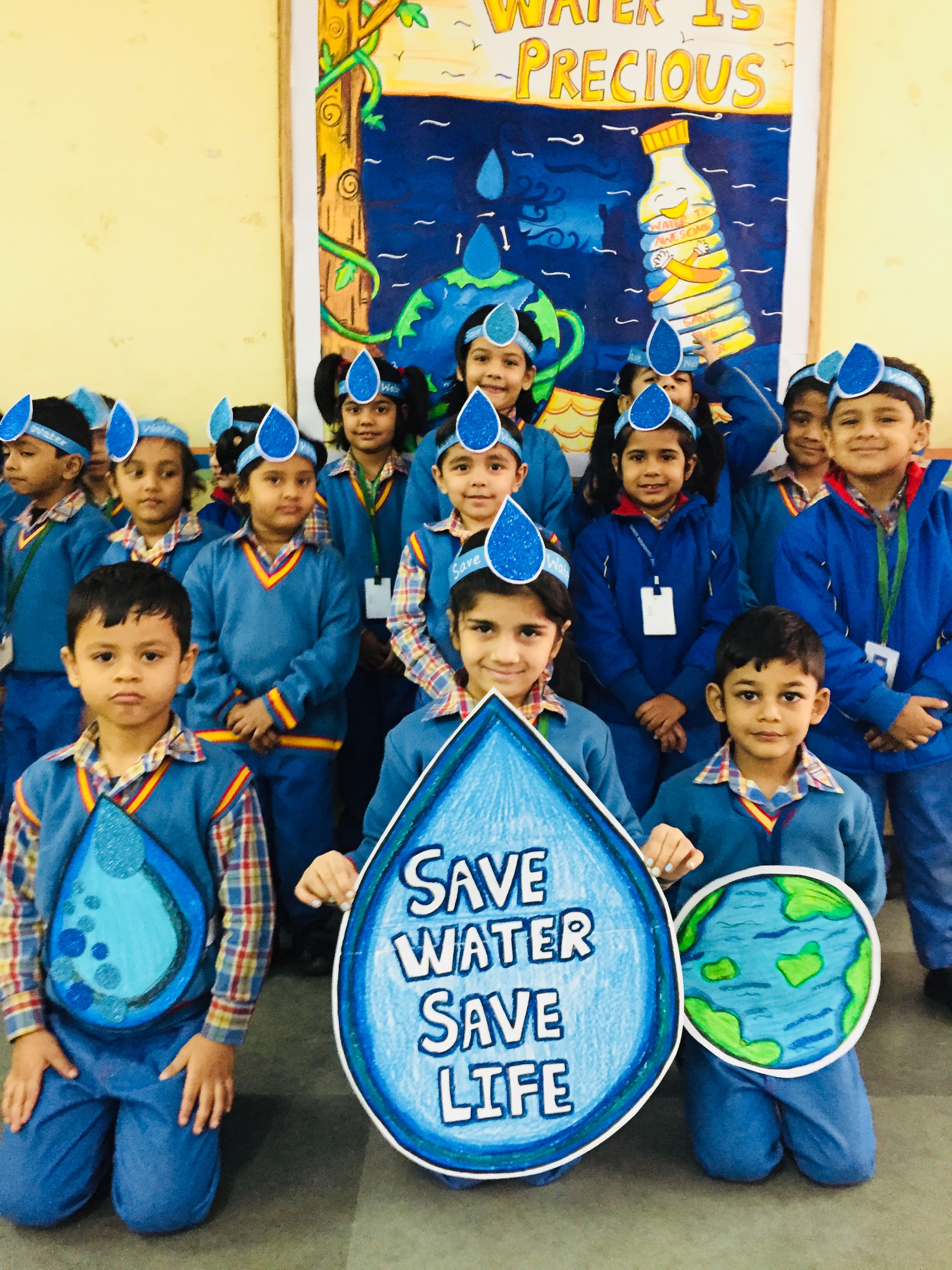
The school has championed multiple sustainable initiatives that teach children to coexist with nature via experiential-based learning activities. They have two Rain Water Harvesting systems that recharge groundwater tables every year, and during monsoons, the students from the middle school are taken to the structure to see the process.
65 per cent of the school’s electricity is produced from the solar plant of 71.2 KiloWatt placed on the terrace. Every year, the school saves close to Rs 10 lakh on the electricity bill.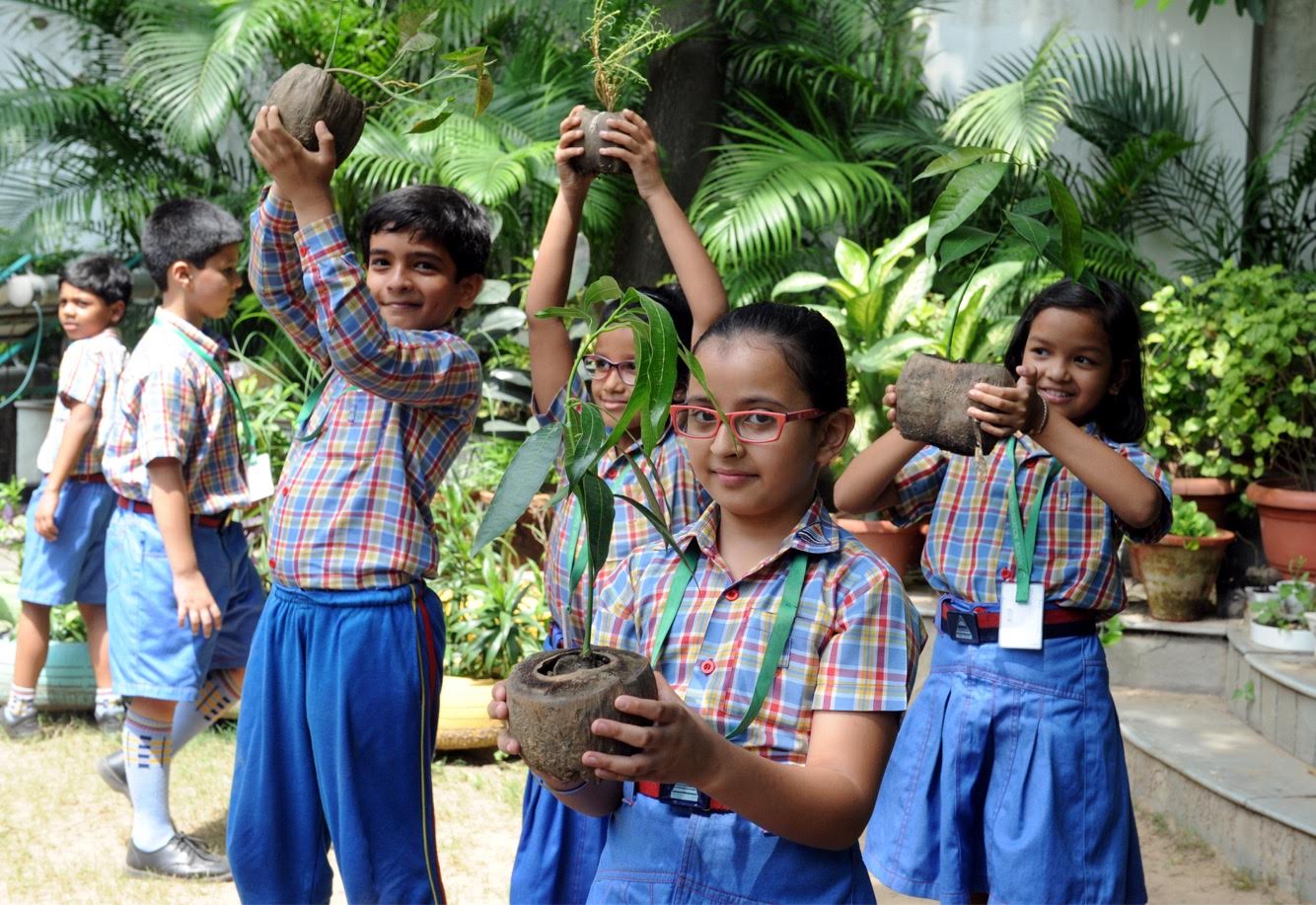
The school prevented 87 tonnes of carbon dioxide in the first year of its installation in 2014, which is equivalent to the pollution produced by running a passenger vehicle around the Earth’s equator nine times, Susan Thomas tells The Better India. She is the Development Advisor associated with The Foundation School.
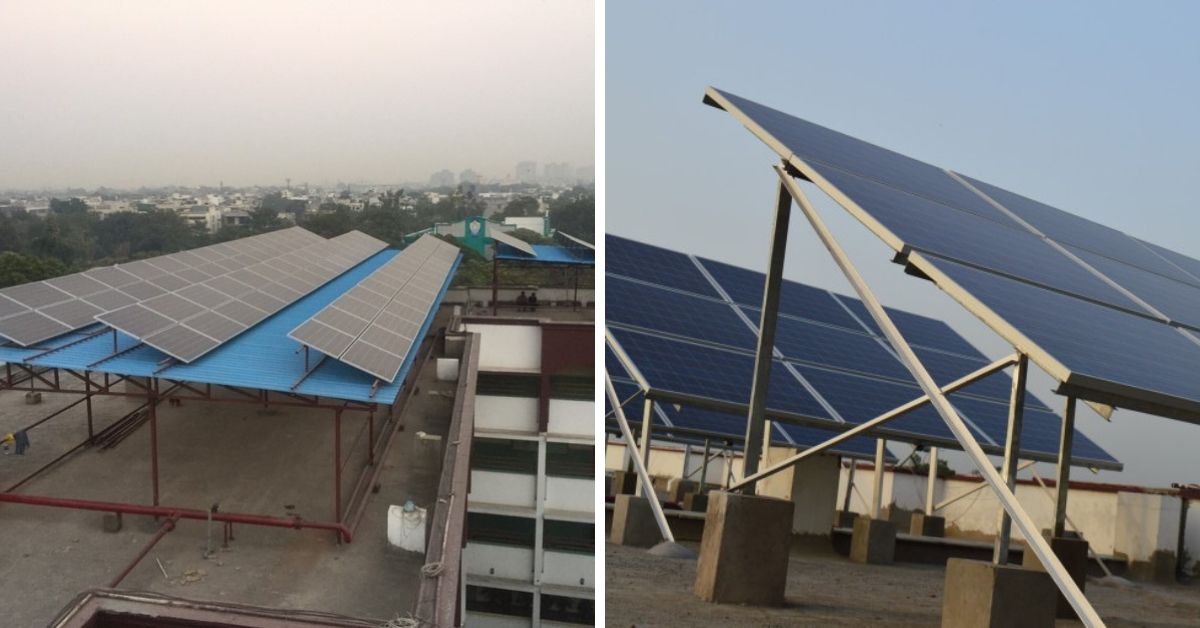
The school has two composting units, the smaller one known as ‘rolly polly’, to convert biodegradable waste into manure. It is a process in which students participate—they deposit the waste in the unit and roll it on the ground a few times to make sure that waste is properly mixed with the organic fertiliser. The second is a bio composter which uses bio-enzymes for horticultural waste generated on the campus.
Since its installation last year, the unit has generated manure three times.
The school also has a farm-cum-forest where each student gets to pluck vegetables. On the farm, teachers explain natural farming and introduce children to organic vegetables. The farm has life-size science models as well to give students a hands-on experience.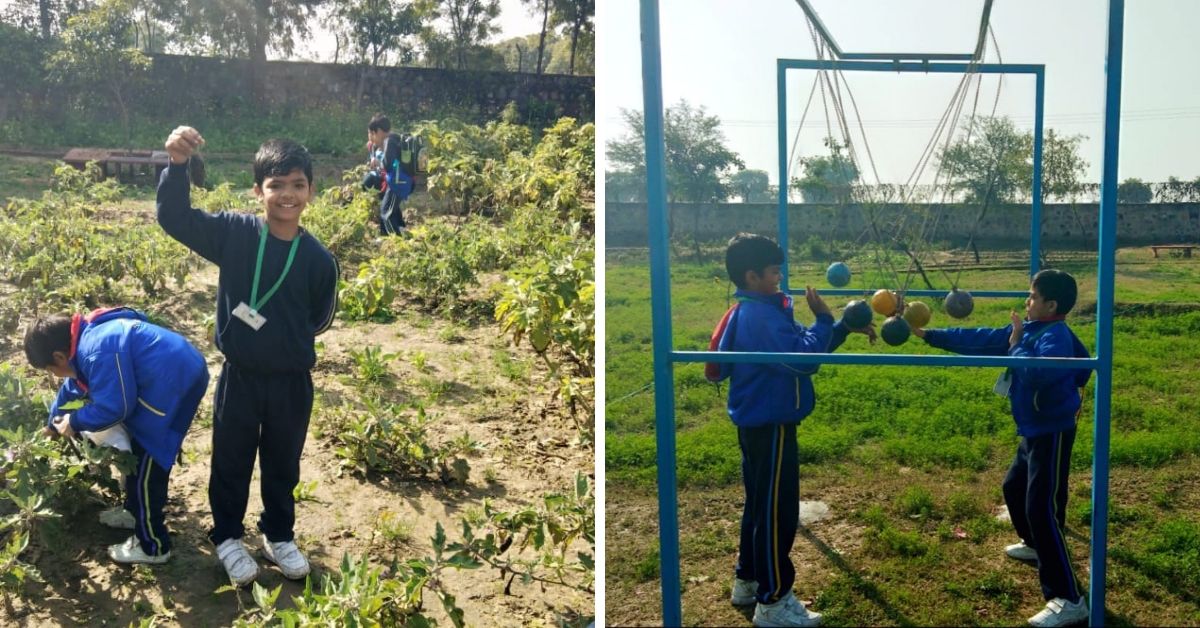
In this scenario, Rhea’s efforts to reduce plastic at home stem from the school’s philosophy of a plastic-free environment.
We have put a blanket ban on single-use plastics, and our canteens have replaced all plastic cutlery with steel. Once a week, we also observe Mute-Food Day, where children bring no item that has the potential to generate waste. Moreover, they do not bring any food item that has packaging or peels, says Susan.
Bridging the Education Gap
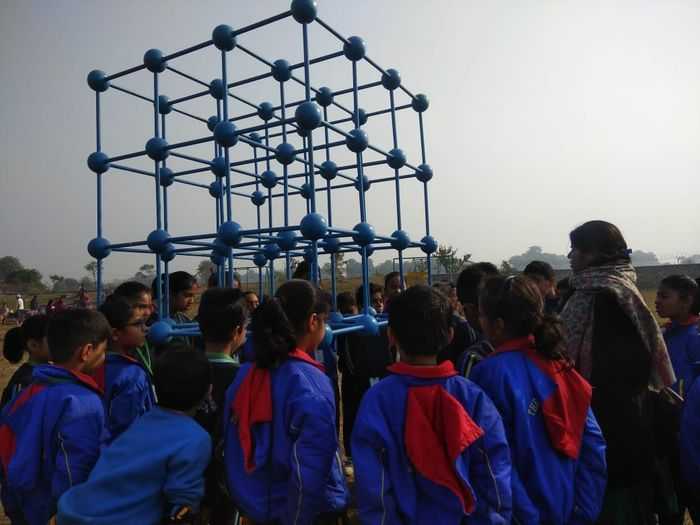
Despite a 40 per cent rise in the number of private schools in Delhi in the last four years, securing admission for children is nothing less than a race.
Demand for quality education in India is extremely high, and every year, millions of parents join the race for admissions. As a solution, our school started afternoon shifts in 2011 to judiciously utilise space and academic resources. In a populous country like ours, with resource constraints, a double-shift school offers learning opportunities to a large segment of our student population, says Susan.
The Foundation School is a K-8 institution recognised by the Delhi Directorate of Education till the senior secondary level. It has 600 students in two batches—7.30 am-1.30pm for the morning batch; and 12.30-5.30 pm for the afternoon batch. The school has allocated the same resources, including classrooms, computer rooms, playgrounds, boards, library, and so on, in both shifts.
For many parents, especially in Delhi, afternoon schools seem unusual, but it is quite common in Maharashtra.
With insufficient open spaces in Delhi for new schools, the afternoon shift is an excellent option, says Vice Chairperson of Foundation School, Brinda Shroff. She adds, “It also saves commute time for children living in the vicinity if the only other available morning school is at a great distance.”
Some parents believe that an afternoon school leaves very time for children to pursue extra-curricular activities, while others argue that kids would stay up late at night with schools beginning later in the day. Thus, many parents frown upon afternoon shifts.
However, there also exists a group of parents who favour afternoon shifts as it would help complete the child’s sleep cycle.
“Waking up early may not allow children to pay full attention during school hours. As a parent, I have the additional fear of addiction of caffeine in my child,” says Aban, who happily shifted her daughter to the afternoon shift in 2011.
With education being the key to socio-economic development, schools play an integral part in a child’s growth. In this scenario, it is crucial that they continuously evolve their policy, both theoretically and practically.
Also Read: Karnataka College Upcycles 700 Plastic Bottles Into Stunning Hanging Garden!
(Edited by Shruti Singhal)
Like this story? Or have something to share?
Write to us: [email protected]
Connect with us on Facebook and Twitter.
This story made me
- 97
- 121
- 89
- 167
Tell Us More
We bring stories straight from the heart of India, to inspire millions and create a wave of impact. Our positive movement is growing bigger everyday, and we would love for you to join it.
Please contribute whatever you can, every little penny helps our team in bringing you more stories that support dreams and spread hope.








